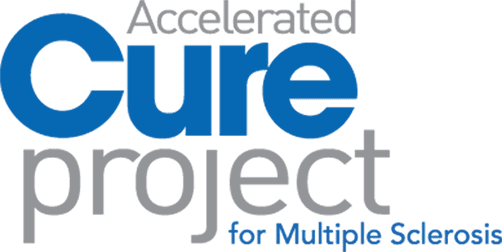Pediatric MS is rare, affecting only 2 to 10 percent of people with the disease. However, for those affected, it significantly impacts the entire family. Most MS research focuses on adults, highlighting the need for more studies to understand the treatments and support for young people with MS. iConquerMS Kids & Teens enables this age group and their families to contribute to pediatric MS research, while providing a supportive community for those living with the disease.


Mr. Oscar Monkey (Oscar) has been one of our closest collaborators since the inception of iConquerMS Kids & Teens. Oscar is an organization that provides resources and support for young people with MS. They offer fellowship opportunities like Zoom calls and summer camps, as well as a scholarship program for high school seniors. ACP sponsored two of these scholarships, and we’re excited to highlight the winners below!
Alivia Cook
Alivia was diagnosed with MS in 2019, when she was a sophomore in high school. She is now a senior at Case Western University, majoring in psychology and minoring in childhood studies, communication sciences, and nutrition. She would eventually like to earn her Ph.D. and provide support to children and families as a school psychologist.

“MS has shown me how many children with chronic illnesses are not receiving proper support from their schools and how it is hindering their social emotional growth and their educational opportunities. I believe in strong advocacy for vulnerable communities because everyone deserves a good starting ground.”
Alivia had her first student support meeting during her sophomore year of high school. The three teachers that attended offered her valuable guidance that still motivates her today. This advice included focusing on herself while also keeping her academic goals in mind.

Now, 5 years later, Alivia faces new challenges as her disease progresses. In January 2023, she learned that her MS had worsened and her medication was no longer effective, leaving her fearful about returning to college far from home. Although Alivia’s neurologist connected her with excellent local support, the severe fatigue from her first infusion of a new MS treatment made attending class difficult. Despite having academic accommodations in place, one professor unjustly penalized her for missing classes, impacting her grade. This challenging experience has strengthened Alivia’s self-advocacy skills and resilience in managing both her education and health.
“Sometimes my MS symptoms impact my ability to function in everyday life. It is hard for people to understand something like this if they have never gone through it. While this situation was tough, MS made me tougher. Through years of learning how to navigate life with an invisible disability, I have learned incredible self-advocacy skills.”
A good support system is crucial for people with MS. Alivia’s mother and grandmother are the backbone of hers. Her father died when she was two and her mother needed extra help, so they moved closer to her grandparents. Alivia developed a close bond with them, especially her grandmother Laura. When Alivia first experienced symptoms, Laura stayed by her side, helping her navigate doctor appointments and tests. Laura’s patience and love were evident as she cared for Alivia after a tough spinal tap. Beyond MS, Laura has been a constant presence in Alivia’s life.

“As I have transitioned to college far away, my grandma and I continue to have weekly Facetimes and many, many texts throughout the day. Even through all the miles, she has still remained my best friend and number one supporter.”

Alivia has other sources of support, too. Friends from high school, college and those she’s met through Oscar are a constant source of encouragement. Alivia shares, “Cleveland hosted a MS Walk in May and my friends and sorority sisters at school came out to support me. It felt really nice knowing I have an awesome support system here… The people I have met through Oscar’s camp are friends I can call on during our times away from camp. And Emily and the other staff at Oscar are always a phone call away for support as well. It is very comforting to know I have a second family with Oscar!”
“I enjoy reading the iConquerMS newsletters and learning about research that is going on. It is really encouraging to see how hard people are working to make MS life better.”
Looking to the future, Alivia shares her post-graduation plans, “I always enjoyed working with children from the summer camps I worked at and babysitting during the school year. In 5 years, I see myself finishing my Ph.D. in school psychology…Not only do school psychs work one-on-one with students and families, they make sure the facility is following along with accommodations students need. They are the first advocates for the students and given my experiences, I know how to be assertive, yet respectful to achieve this…I see myself being happy in life. I have learned so much since getting diagnosed on how to manage stress and how to ask for help. This has transformed my ability to be happy when I never thought I could be again.”

“I believe the future will have more medical advancements and I hope to see my current medication working and to be optimistic, I hope to see a cure for MS!”
What does winning the Oscar scholarship mean to you?
“Winning the scholarship empowers me. It shows me other people believe in my academic endeavors and it shows me I have a community behind me supporting me. It is tough sometimes being a college student with a disability, but knowing I have this amazing community behind me cheering me on is incredible.”
Allison Hitchcock
Allison was diagnosed with MS in the middle of her freshman year of high school. She is now a junior at St. John Fisher University and hopes to pursue a career in nursing. Allison is a Congressional Advocate for people living with MS through the National Multiple Sclerosis Society.

“Being diagnosed with MS as a fourteen-year-old was an extremely complicated time for a young teenager. I found a lot of comfort and compassion in all the nurses I came in contact with. This inspired me to declare my major as nursing when I started college as I want to be the same support system for my future patients.”

“I’ve found that I am much more resilient than I ever thought I could be. Since my MS diagnosis, I have a great deal more self-respect for myself and what I experience. I am known to be quite a perfectionist, especially with my schooling, so I also believe my MS has taught me to be more forgiving of myself.”
Allison’s MS diagnosis brought unexpected challenges, adding to the already tough adjustment to high school life. Frequent medical appointments and fatigue often caused her to miss classes, making it hard to keep up with her peers. In college, she continues to struggle with balancing her coursework and her condition. Being immunocompromised, she has to miss significant class time due to infections, especially after her MS treatments. Social interactions are also taxing, as overcompensating for low energy levels leaves her exhausted. Despite these challenges, Allison has learned to navigate both the academic hurdles and the general difficulties that come with her diagnosis.
Allison’s ongoing involvement with Oscar has been a valuable source of knowledge, support, and connections. Shortly after experiencing her first episode of optic neuritis, Allison was fortunate to discover the Oscar community. When she was officially diagnosed with MS two years later, she turned to them for support. She regularly attends Oscar’s camps, where she enjoys sharing her experiences of living with MS as a teen and helping others, especially those who are newly diagnosed.

“I have been to 6 Oscar camps so far. I and everyone else love them so much because they give us a place to just go and have fun and not have our MS be on our minds, surprisingly as it is an MS camp/retreat. It is so nice that for a week out of every year, we can all come together and not have to explain ourselves to others. Our only worry is about having fun and spending quality time with people we love and consider family.”

“Just as Oscar gave me a sense of belonging and connectivity to others like me, I’m honored to be able to assist in working on a project (iConquerMS Kids & Teens) that could possibly do the same for other pediatric patients.”
Allison had many doctors misdiagnose her because pediatric MS is so rare. This, along with her involvement with Oscar, inspired her to raise awareness about the disease. In 2020, Allison served as a Congressional Teen Advocate at the National Multiple Sclerosis Society Public Policy Conference on Capitol Hill with the Oscar organization. At this conference, she connected with others who shared her passion for MS advocacy. One of these connections led her to join the steering committee which directed the development of iConquerMS Kids & Teens. She and her family members were involved in the development of the prioritized research agenda for pediatric MS to guide future research.
Looking to the future, Allison shares her post-graduation plans, “In five years, I hope to be working as a registered nurse, preferably on the pediatric neurology floor. One of my biggest supporters has also been my MS nurse practitioner. I see the work she does and what kind of impact she has on her patients and their families which has been a very inspiring experience. In ten years, I see myself having furthered my degree and working as a nurse practitioner specializing in pediatric neurology.”

“iConquerMS has provided me with many connections that I can reach out to at any time, as well as granting me this incredible scholarship.”
What does winning the Oscar scholarship mean to you?
“Just knowing there are people who want to be invested in my future further solidifies my feeling of being supported and cheered on to achieve what I want to do in life, and this means everything to me. I will hopefully be able to pay it forward in my future career!”
The stories of Alivia Cook and Allison Hitchcock show the incredible strength and support needed to face pediatric MS. Through organizations like Oscar and initiatives like iConquerMS Kids & Teens, they have found vital resources and community support. Their experiences remind us of the importance of continued research, advocacy, and compassionate care. Increasing pediatric participation in iConquerMS will allow investigators to conduct studies to address the unique needs, interests, and priorities of children and teens living with MS. Are you a child or teenager with MS, or one of their loved ones? Please consider joining iConquerMS Kids & Teens today!




